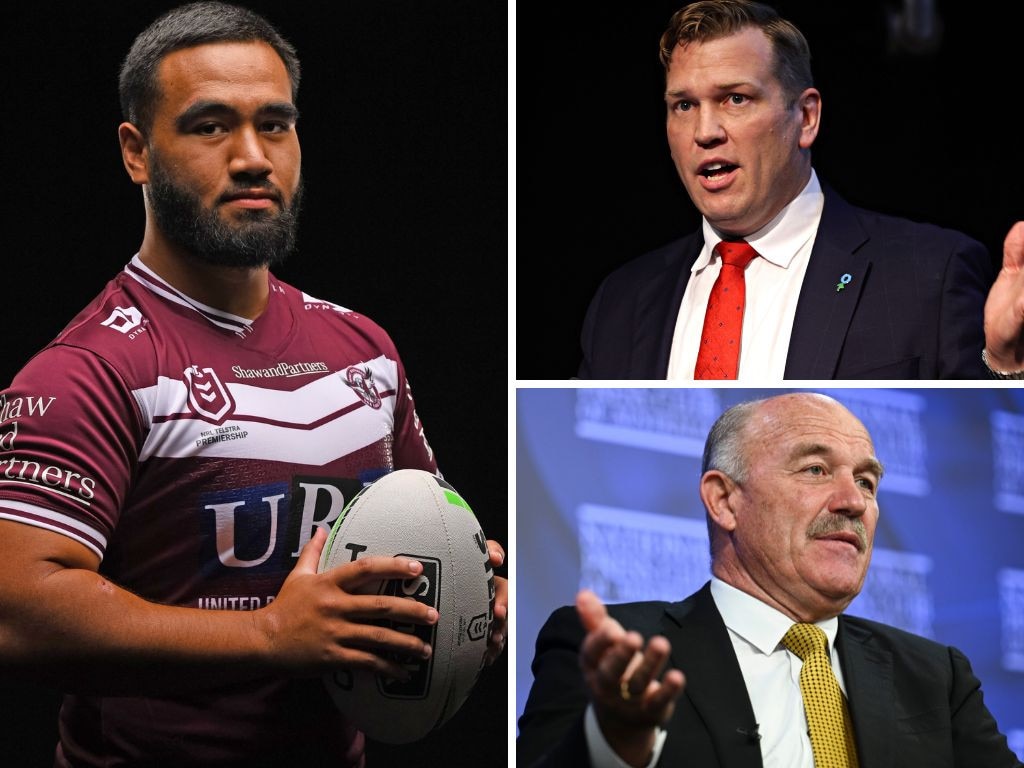AFL bid to kill brain traumas court case
The AFL and the Geelong Football Club have moved to break apart a billion-dollar court case potentially ending a class action involving more than 90 brain-injured players.

The AFL and the Geelong Football Club have moved to break apart a billion-dollar class action involving more than 90 former players with brain injuries.
The AFL lawyers have made an application to have the case “declassed” in the Supreme Court of Victoria.
Margalit Lawyers managing principal Michel Margalit confirmed they recently “confidentially” updated their clients on the move by the AFL and Geelong but could not expand on the matter before the court.
“As was communicated to the group members, the AFL and Geelong Football Club have made applications to the court that the class action be ‘declassed’,” Margalit said in a statement to The Australian.
“The declassing applications are currently before the court, therefore it is inappropriate to comment on them at this time.
“The players await the decision of the court,” she said. “Margalit Injury Lawyers remains committed to supporting AFL players who have suffered permanent injuries as a result of concussions sustained during their playing careers.”

If it is “declassed”, this means the case can’t proceed as a group proceeding, or class action, and individual injured players would each need to bring their own separate cases.
The AFL has been contacted for comment.
It has been three years since Margalit Lawyers announced they would be acting on behalf of brain-injured footballers.
The 90 or so former players are seeking compensation for pain and suffering, economic loss and medical expenses.
A similar class action in the US brought by former NFL players resulted in an initial payout of more than $US1bn.
In June, the presiding judge, Justice Andrew Keogh, in a bid to speed up the process, raised potentially axing the 38-year class action period of 1985 to March 14, 2023 – when an alleged victim needed to have suffered an alleged permanent brain injury and/or shown symptoms of that injury – to the years the lead plaintiff, Geelong premiership footballer Max Rooke, played.
Rooke played from 2002 to 2010, 135 games in total, and he has alleged he suffered permanent, life-altering conditions as a result of concussion-related injuries while playing and due to the negligence of the AFL.
In May, the AFL Players Association announced they had more than doubled their injury and support fund to $54m, which means former players could be eligible to receive payments of up to $600,000 as part of a new Severe Injury Benefit.
But Margalit said while her firm “welcomes” the recognition of traumatic brain injuries in the newly created AFL & AFLW Players’ Injury & Support Fund, the amount of financial compensation on offer is not enough.
“We have serious concerns … that the benefits potentially available to players remain significantly inadequate,” Margalit said in a statement.
“The compensation available under the Injury & Support Fund is just a fraction of the compensation that might be available to an injured player before the courts.
“The severity and deteriorating nature of the injuries of some players mean that the costs of care throughout their lifetime will be significant.
“The maximum amount payable to a player suffering a permanent impairment of cognitive or bodily function through the Injury & Support Fund is just $600,000, which would only be applicable in the most serious of cases.
“Much of any sum payable is likely to be quickly exhausted in the course of accessing the much needed and costly medical care.
“We are concerned that without independent legal advice, a player may under-settle their claim for compensation under the new Injury & Support Fund.
“It is imperative that any player who is considering making an application for a payment under the fund seeks independent legal advice from a personal injury lawyer first who has the expertise to advise them about what might be their full entitlements under the law.”
Margalit also said that internal compensation funds have long been criticised for their “lack of transparency and absence of a right to review” any determination made.
“For instance, the The Melbourne Response, a fund created in relation to abuse victims of the Catholic Church, was criticised for significantly under compensating those abuse victims who engaged the fund,” she said.
“We are yet to see whether an adequate right of review process will be afforded to players in this Injury & Support Fund.”

Brain injuries are a major issue for the game. The family of former AFL player Shane Tuck, who was found to have chronic traumatic encephalopathy post-mortem, made a plea last month for the code to do more to protect the players.
A 2023 coronial inquiry into Tuck’s death made a raft of safety recommendations to the AFL – including two major initiatives: restricting contact in training, and introducing independent doctors – in an effort to mitigate against brain injuries including CTE, but 19 months on the league is yet to implement either of these key measures.
“I thought Shane’s legacy would be worthy of something because he had gone through so much and we had fought so hard,” said his sister, Renee Tuck, last month.
“Instead, these key recommendations made by the coroner, John Cain Jr – restricting contact in training and introducing independent doctors – have not yet happened.”
The AFL has said there is “no higher priority” than the health and safety of players.
It also has previously said it is continuing to research and measure contact in training as it “considers” implementing the coroner’s recommendation.
Leading international sporting bodies including World Rugby and the NFL in the US have already moved to limit contact in training.
NFL players are only allowed to have padded practice 14 times during the regular season and a maximum of once per week during the playoffs.







To join the conversation, please log in. Don't have an account? Register
Join the conversation, you are commenting as Logout